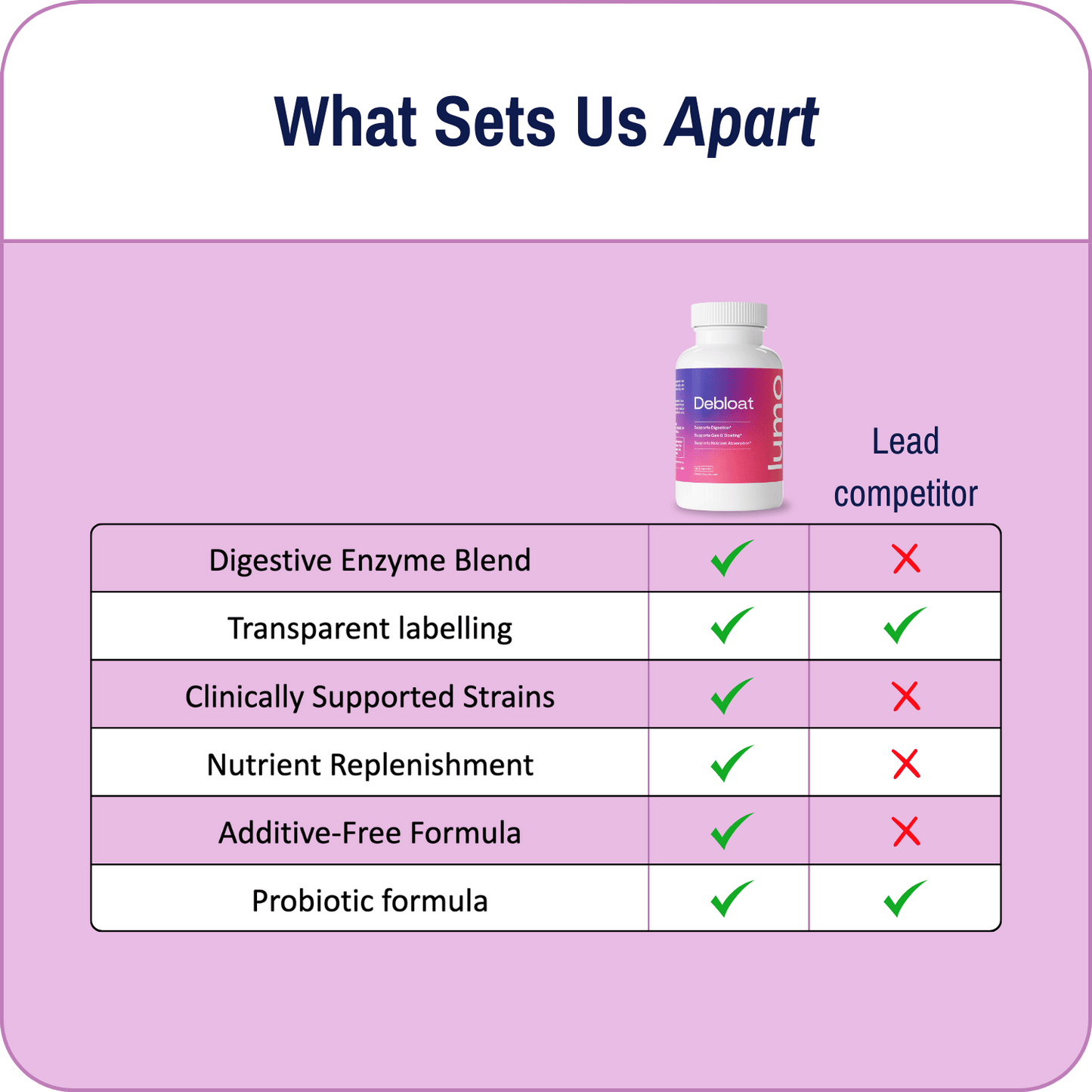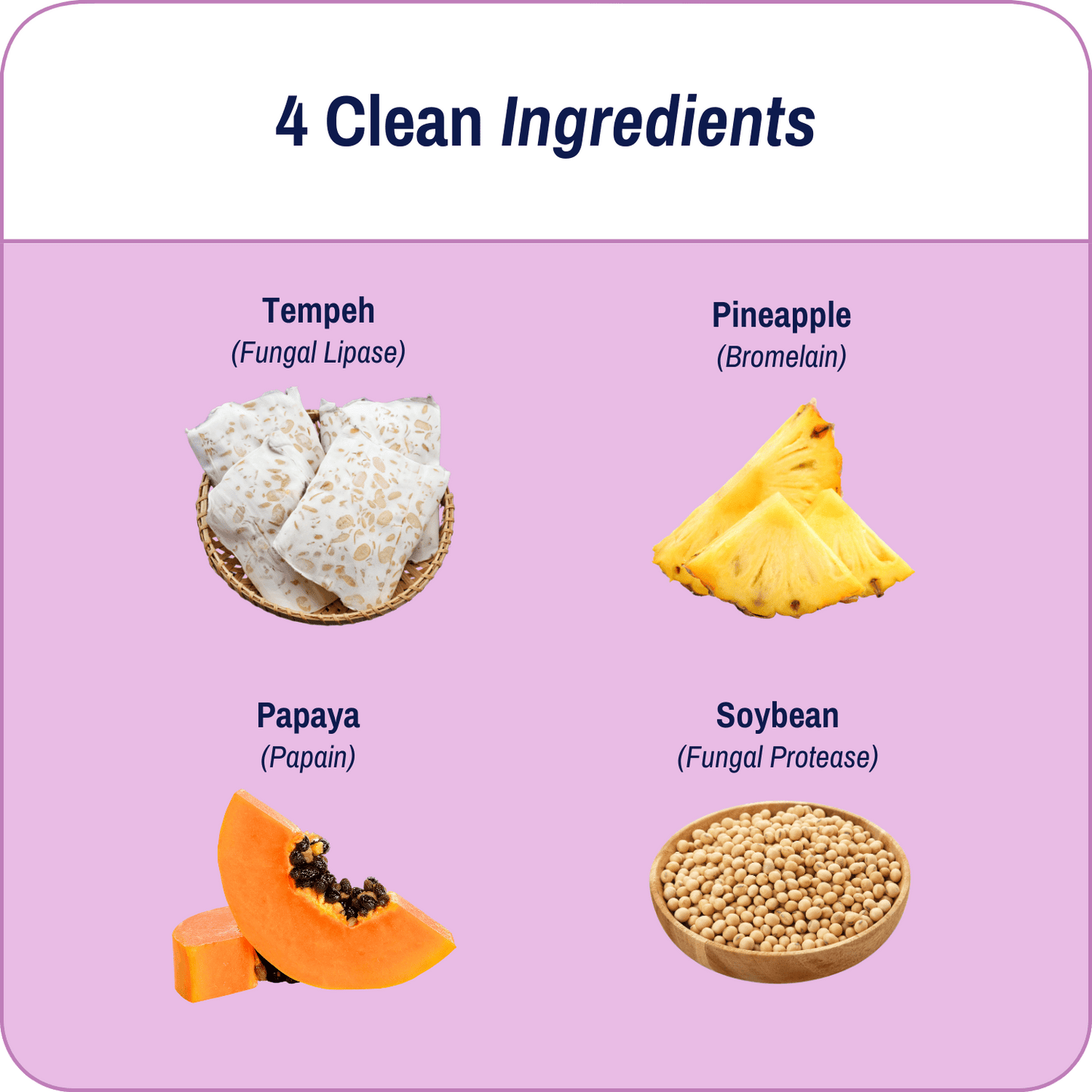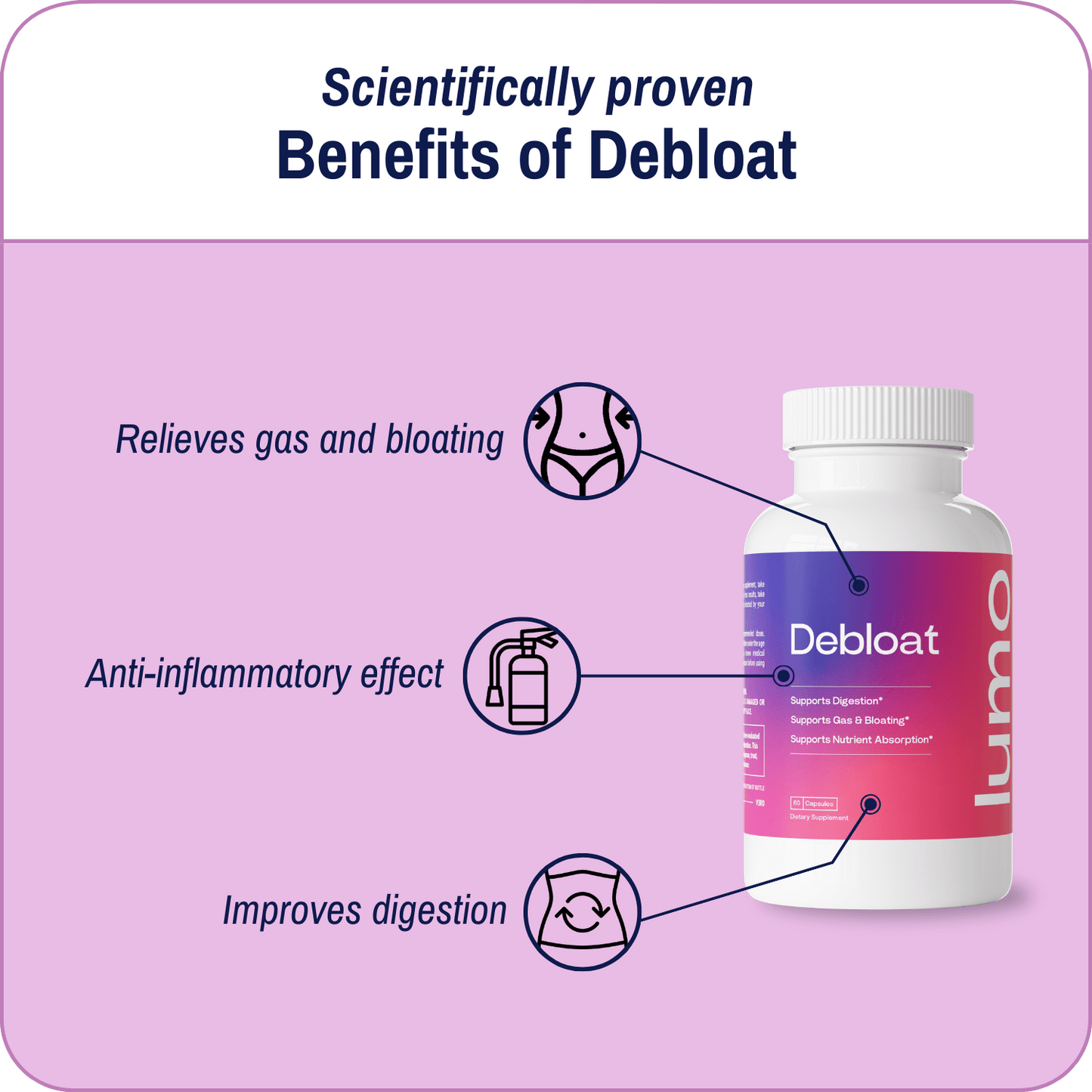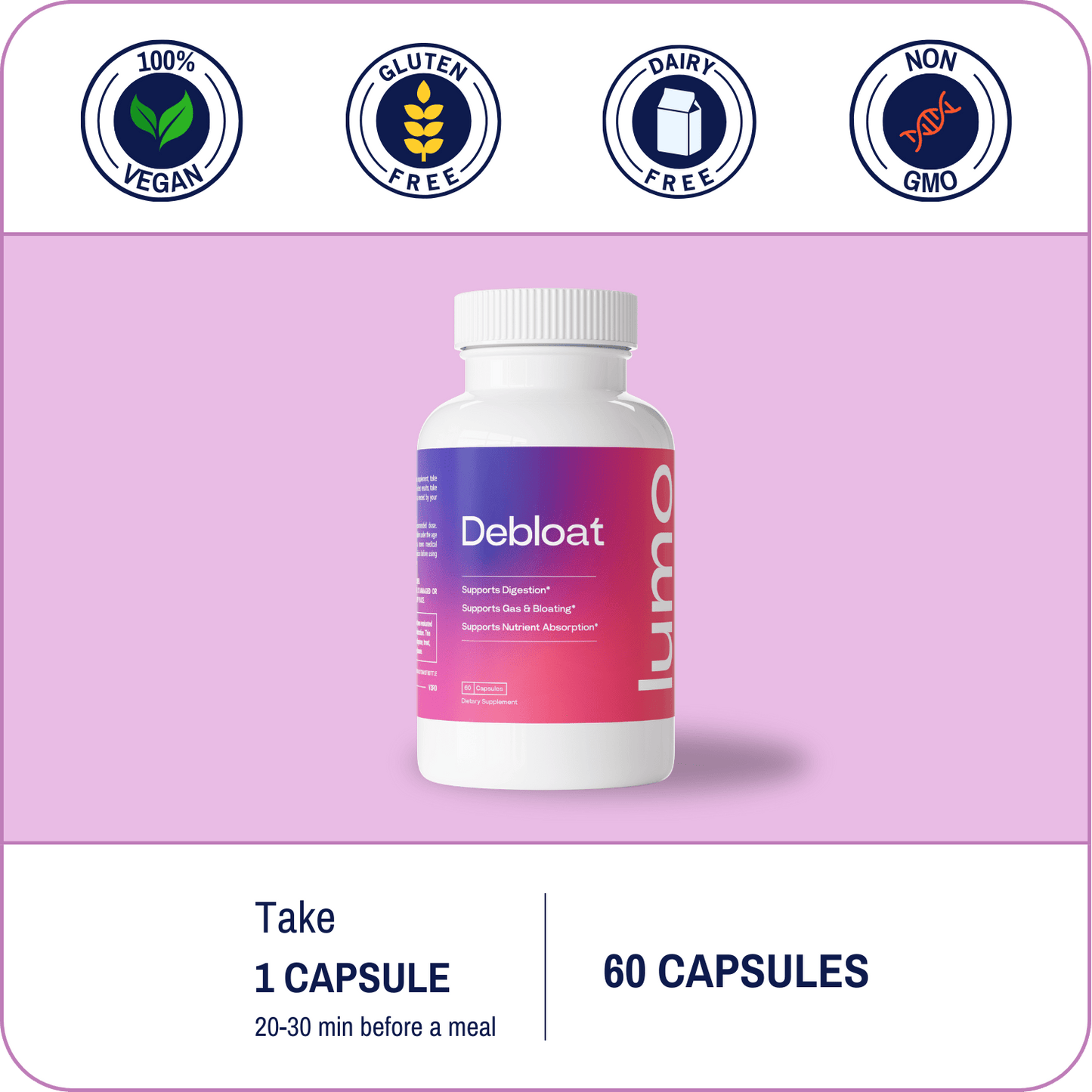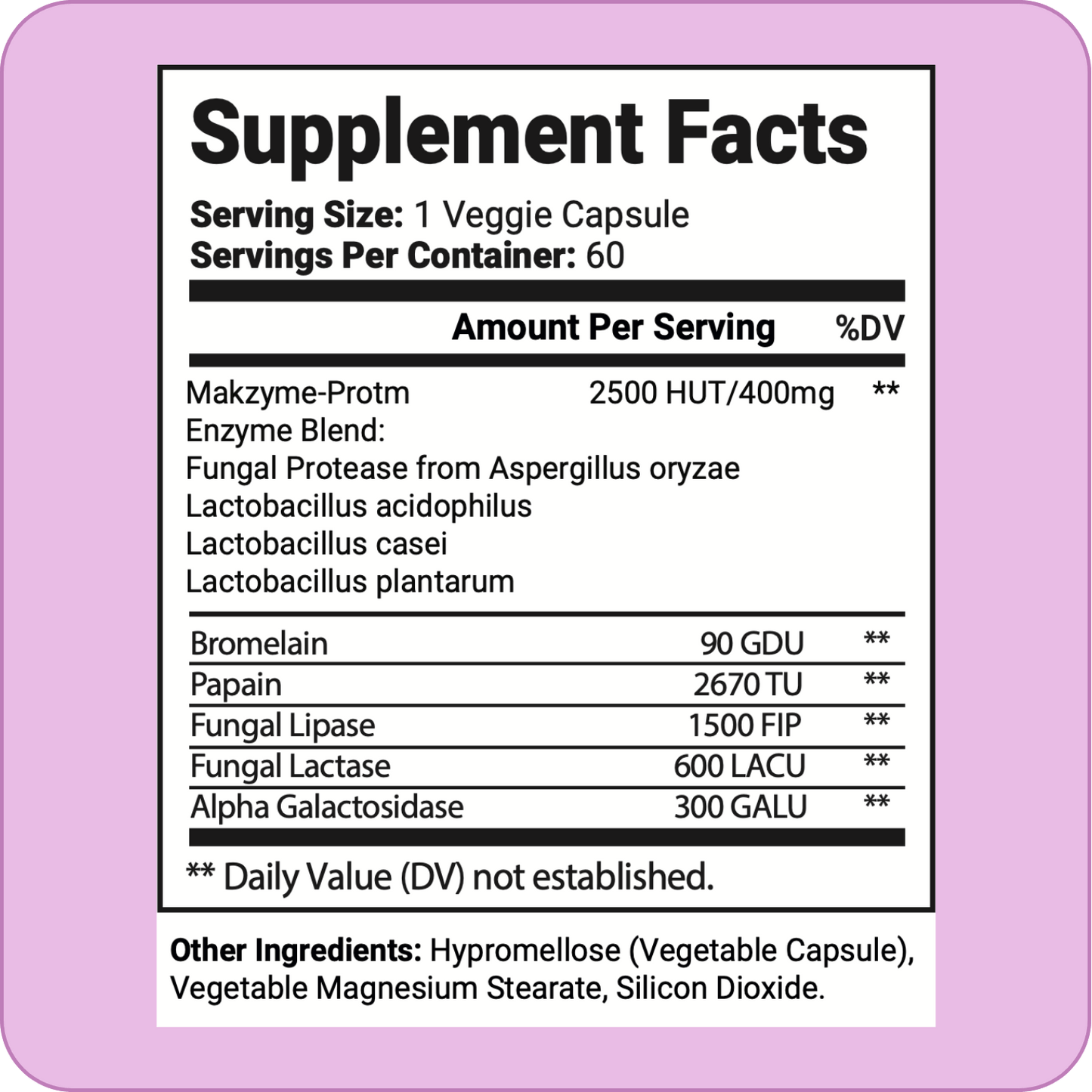
How Digestive Enzymes Help with Bloating
Bloating is a common digestive issue caused by heavy meals, poor gut health, or imbalances. It can leave you feeling uncomfortable and sluggish. Fortunately, digestive enzymes offer a science-backed solution. This article explores how they help with bloating, when to take them, and what to look for in a supplement.
Table of Contents
- What are Digestive Enzymes?
- How Digestive Enzymes Help with Bloating
- Types of Digestive Enzymes
- Signs You May Need More Digestive Enzymes
- Natural Sources of Digestive Enzymes
- Digestive Enzyme Supplements
- Best Time to Take Enzymes

What are Digestive Enzymes?
Digestive enzymes are proteins that your body produces to break down food into absorbable nutrients. They’re released by your mouth, stomach, pancreas, and small intestine. Without enough enzymes, your body struggles to digest food, often leading to bloating, gas, and discomfort.
How Digestive Enzymes Help with Bloating
Bloating often results from undigested food sitting in your digestive tract. Enzymes break down carbs, fats, and proteins more efficiently, reducing the fermentation that causes gas buildup. This process leads to smoother digestion and less abdominal pressure or swelling.
If you experience bloating after eating, especially after high-protein or high-fiber meals, a digestive enzyme supplement might help your body process food more effectively.
Types of Digestive Enzymes
There are several types of digestive enzymes, each with a unique role:
- Protease: Breaks down proteins into amino acids.
- Lipase: Breaks down fats into fatty acids and glycerol.
- Amylase: Breaks down carbohydrates into sugars.
- Lactase: Helps digest lactose, the sugar in milk.
- Cellulase: Helps break down fiber.
Each of these plays a role in relieving bloating by improving food breakdown and nutrient absorption.
Signs You May Need More Digestive Enzymes
If you're constantly feeling bloated, sluggish, or uncomfortable after meals, your body might not be producing enough enzymes. Common signs include:
- Frequent bloating or gas
- Feeling full after only a few bites
- Floating stools or undigested food in stool
- Heartburn or acid reflux
- Irregular bowel movements
If these symptoms sound familiar, you may benefit from adding a digestive enzyme supplement to your routine.
Natural Sources of Digestive Enzymes
Several foods are naturally rich in digestive enzymes and can support your digestion when eaten regularly. Pineapple contains bromelain, which helps break down protein. Papaya is rich in papain, another protein-digesting enzyme. Fermented foods like tempeh and kimchi contain enzymes and probiotics that support overall gut health. Raw honey, ginger, and mango are also beneficial.
To get the most out of these foods, try eating them raw or lightly cooked, as high heat can destroy enzymes.
Digestive Enzyme Supplements
Supplements are a convenient way to ensure your body gets the enzymes it needs, especially if you have a deficiency or specific food intolerances. A high-quality digestive enzyme supplement often combines enzymes to provide full-spectrum support.
Lumo’s Debloat supplement includes a powerful blend of probiotics and digestive enzymes to help relieve bloating, improve nutrient absorption, and promote overall gut health. It’s vegan, gluten-free, and backed by science — designed to target the root cause of bloating and help you feel lighter and more comfortable.
Best Time to Take Enzymes
For best results, digestive enzymes should be taken right before a meal, ideally 15–30 minutes beforehand. This gives the enzymes time to begin working as soon as food enters your stomach.
Some people may also take them with a meal, but taking them before allows for better digestion from the start. Always follow the instructions on the label or consult your healthcare provider.

❓FAQs
Do digestive enzymes help with bloating?
Yes, they help your body break down food more efficiently, preventing fermentation that leads to gas and bloating.
Can I take digestive enzymes every day?
Yes, many people safely take digestive enzymes daily. However, consult with a healthcare provider if you have a specific condition or concern.
Are there any side effects?
Most people tolerate digestive enzymes well. Mild side effects may include nausea or diarrhea if taken in high doses.
How long does it take to feel results?
Some people notice relief within hours, while others may take a few days to a week of consistent use.






